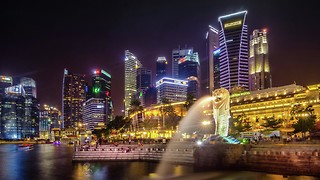Film: Melancholia
Our film reviewer Victoria Green gives her thoughts on the controversial film director Lars Von Trier’s earth shattering release

Lars von Trier is not a director renowned for making conventional or ‘safe’ films and he can hardly be accused of reverting to safe ground here as he puts his own spin on the disaster movie genre with Melancholia. In fact, despite the threat of an oncoming disaster established at the beginning of the film, it seems more accurate to describe Melancholia as a family drama. Indeed, primarily it focuses on the relationship between two sisters, Justine (Kirstin Dunst) and Claire (Charlotte Gainsborough), in what might fairly be described as an incredibly dysfunctional upper-class family.
In classic von Trier style, this film release rode upon a wave of publicity stemming from controversy. In this instance said controversy stemmed from the descent of a joke about von Trier’s own Jewish heritage, attempted in the most perilous of arenas – a press conference - into a stream of uncomfortable comments regarding the Nazis. These misjudged comments earned von Trier the title of ‘persona non gratia’ at all future Cannes Film Festivals. Nonetheless, the unpleasantness surrounding the release of Melancholia did not generally damage its critical reception and Kirstin Dunst went on to win Best Actress at the festival award for her portrayal of Justine, the principal character of the first part.
Now, with the film’s UK release last Friday, it is not hard to see how Melancholia was able to overcome the handicap inflicted upon it by its director’s comments, receiving generally positive reviews from a media which is, at its most affable, less than enamoured with von Trier. With regards purely to its visual appeal it is very difficult to argue that Melancholia is anything but stunning. The director has very much abandoned the Dogme principals he once championed (although von Trier fans may be glad to know that his commitment to handheld cameras remains) and delivers a film full of vibrant colours, impressive special effects and generally beautiful arrangements. Indeed, this reviewer believes this film rivals the Tree of Life with regards to cinematography, without ever engaging in drawn-out breaks from the story which can seem disruptive and, arguably, self indulgent.

Von Trier has also clearly succeeded in drawing the best out of an already strong cast, as both Dunst and Gainsborough offer highly capable female leads. Additionally the supporting cast, including John Hurt, Charlotte Rampling, Kiefer Sutherland and, von Trier film stalwart, Stellan Skarsgård, enable the film to shine, delivering a collection of impressive performances. The cast are, of course, assisted by the quality of the script, which introduces the reader to an underlying hostility within the family which can help give the audience some understanding for characters that might otherwise seem farcical or singularly despicable. Indeed, it seems unlikely that the audience could have any sympathy for Justine, who acts as an unflinching representation of depression and the aggression and selfishness it can engender, were it not for the fact that they see the family to which she has been exposed. One might also note that this is one of the true strengths of von Trier’s script; his frank depiction of depression avoids the romanticising angst and misanthropy, thus creating far more believable, if less unconditionally appealing, characters.
Despite all this praise, Melancholia is far from a perfect film and certainly not von Trier’s best. The film does seem to drag at points, although it is difficult to pinpoint exactly why this is. Moreover, the soundtrack, although fitting in the first half, seems to become unnecessarily repetitive in part two. Equally, although this is not actually a flaw, it seems necessary to warn those who are not familiar with von Trier’s work that Melancholia is full of unpleasant characters, a fact that led some of the audience in the screening I was in to laugh awkwardly throughout.
Ultimately, Melancholia is a good film, certainly in terms of acting and visuals a great film with a very satisfying ending. However, in some ways it seems to lack the heart that makes von Trier’s earlier work, such as The Idiots (1998), Dancer in the Dark (2000) and Dogville (2003), so involving.
 News / Council rejects Wolfson’s planned expansion28 August 2025
News / Council rejects Wolfson’s planned expansion28 August 2025 News / Tompkins Table 2025: Trinity widens gap on Christ’s19 August 2025
News / Tompkins Table 2025: Trinity widens gap on Christ’s19 August 2025 Comment / My problem with the year abroad29 August 2025
Comment / My problem with the year abroad29 August 2025 News / ‘Out of the Ordinary’ festival takes over Cambridge 26 August 2025
News / ‘Out of the Ordinary’ festival takes over Cambridge 26 August 2025 Sport / Return to your childhood sport! 29 August 2025
Sport / Return to your childhood sport! 29 August 2025









